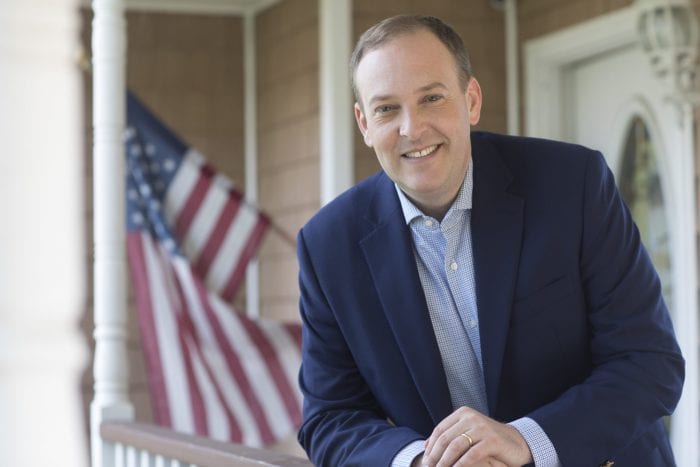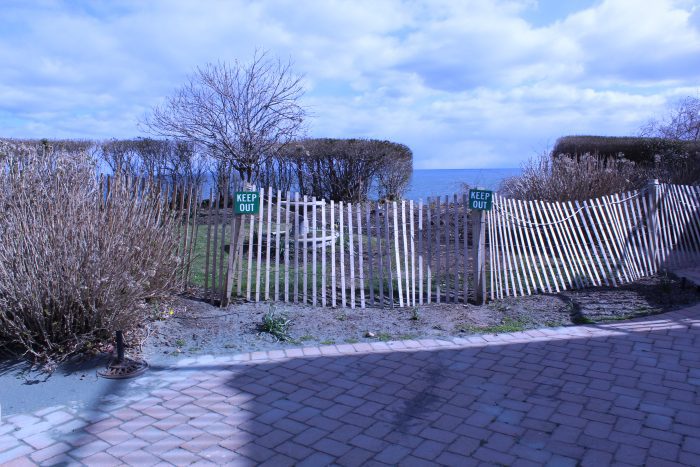By Leah S. Dunaief

Sitting at a bistro table on the sidewalk in Port Jefferson village this morning, sipping my coffee and people-watching, it occurred to me I could be anywhere enjoying such a scene. I was lingering on after a breakfast business meeting, and now alone, I relaxed with this thought. I could be in the many shoreline villages strung along the New England coast or any of the Atlantic fishing ports of the United States, or for that matter, those on the Pacific or the Gulf of Mexico. I could even be in Paris or Rome, although those are not portside locations.
That’s what summer will do to you. The warmth of the sun and the caressing breeze encourage daydreaming.
I saw residents walking their dogs, who, in turn, seemed more interested in what I was eating than in getting exercise. I greeted people I know, but haven’t seen in too long due to COVID, as they strolled by. A friend rolled down his window and waved on his drive up the block, calling out to me from the far lane to ask how I was. Customers at the next table started chatting with me and showing off their young baby, their first. The waitress came out to check on me and asked, “Can I get you anything more or would you just like to enjoy the moment?” Smart young woman, she understood.
 We live in a wonderful place with many delightful offerings, but we probably don’t take the time to dwell on that fact. For example, even this past Thursday alone, we could have attended the opening night of the Stony Brook Film Festival, screening indie movies from throughout the world at the Staller Center on the campus of Stony Brook University. Or we might have tapped our feet and kept time with a performance at The Jazz Loft in Stony Brook village. The Huntington Summer Arts Festival has ongoing performances, this past Thursday featuring Lakecia Benjamin & Pursuance that started at 8 p.m. in Heckscher Park.
We live in a wonderful place with many delightful offerings, but we probably don’t take the time to dwell on that fact. For example, even this past Thursday alone, we could have attended the opening night of the Stony Brook Film Festival, screening indie movies from throughout the world at the Staller Center on the campus of Stony Brook University. Or we might have tapped our feet and kept time with a performance at The Jazz Loft in Stony Brook village. The Huntington Summer Arts Festival has ongoing performances, this past Thursday featuring Lakecia Benjamin & Pursuance that started at 8 p.m. in Heckscher Park.
Also, on Thursday evening, there was the Smithtown Library concert, a lecture on the much-in-the-news sharks at the Whaling Museum in Cold Spring Harbor, a concert in the Show Mobile at Harborfront Park in the village of Port Jefferson, and in Northport Village Park the Northport Community Band continued its summer concert series. The Huntington Manor Fireman’s Fair, Long Island’s largest, started on Thursday at the Henry L. Stimson Middle School in Huntington Station.
And, as they say, so much more.
I’m not even mentioning the movie showings in the moonlight, the largesse of theaters, the art galleries, the farmers’ markets, the U-Pick opportunities, the wineries, the plethora of restaurants and opportunities for boutique shopping, and the glorious beaches to be enjoyed during the day and under the stars at night that are available at different times and days on our Island.
And try the local corn on the cob. This week it has been fabulous.
This may sound daffy to you, but when the weather becomes unbearably hot and humid, and I just want to get out on the water, I have even been known to ride the rear deck of the ferry to Bridgeport and back to Port Jefferson for a poor person’s afternoon cruise. And if you find yourself in need of a little exercise, walk the wooden pathway around Port Jefferson harbor, with or without your dog.
Next week is already August, and soon the summer will be gone, along with many of these attractions. While certainly others remain, we don’t have quite the leisure of mind to enjoy them that summer brings as the calendar turns.








 Last week, Setauket’s David Calone announced his intention to run for county executive on the Democratic ticket in 2023. Due to term limits, Steve Bellone (D) will not be running.
Last week, Setauket’s David Calone announced his intention to run for county executive on the Democratic ticket in 2023. Due to term limits, Steve Bellone (D) will not be running.







